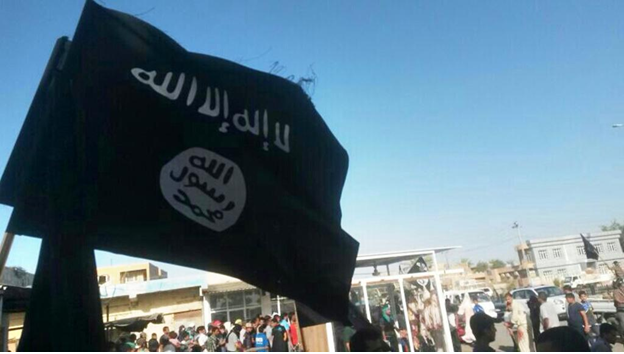Iraq And US Clear IS Militants From Key Dam Area; New Cabinet in Baghdad
IS flag not flying so high lately?
NEW DELHI: The Iraqi government has announced that it has secured a key area around the Haditha dam in Iraq’s Anbar province, having expelled Islamic State militants following expanded United States air strikes.
The development comes as Iraq’s Prime Minister Haider al-Abadi announces a new cabinet, which the US, that has been pushing for political change in Iraq and was the first to call for the ouster of now former Iraqi Prime Minister Nouri-al-Maliki, has hailed as a “milestone” for Iraq. The Obama administration had pinned the blame on Maliki for pursuing divisive policies, that facilitated the rise of sunni militants in northern Iraq -- the foremost among whom were the Islamic State.
Obama was amongst the first to congratulate Abadi on the announcement, with a White House statement saying that the two leaders “agreed on the importance of having the new government quickly take concrete steps to address the aspirations and legitimate grievances of the Iraqi people.” US Secretary of State John Kerry followed with a statement saying that the new government had the "potential to unite all of Iraq's diverse communities.”
Whilst it is true that Maliki and his Shia dominated administration in Baghdad have pursued discriminatory policies, the US has played an instrumental role in Maliki’s rise to power in the first place, in addition to consistently supporting Iraq’s divisive politics. This includes siding with the Iraqi government’s military crackdown on Anbar last December and the decision to clamp down on protests in Falluja using the rouse of “anti-terrorism.” Falluja was the first city to fall to IS militants at the beginning of this year.
More importantly, whilst sectarianism is certainly a factor in the rise of IS -- through which the discontent in Iraq has channeled itself -- it is a factor that was not all that important in Iraq prior to the US invasion of 2003. When the US invasion toppled Saddam Hussein, a need emerged to replace the security vacuum with a new political elite. The main opposition to Hussein at the time were ethno-sectarian parties, and the US brought these factions to power cementing identity politics in the region.
This creation of identity-based politics, paved the way for sectarian identity to become a key political factor. Prior to 2003, although a limited notion of a Shia identity and a Kurdish identity did exist in Iraq, there was no concept of a homogenous Sunni identity. The divisive policies of the Iraqi state -- facilitated by the US -- have paved the way for the emergence of a Sunni identity.
It is this emergence of a Sunni identity rooted in the notion of victimhood, that made the emergence of IS in Iraq possible.
As the group expanded from Iraq into Syria -- establishing a stronghold in Ar-Raqqah province -- it renamed itself the "Islamic State of Iraq and the Levant", or the "Islamic State of Iraq and al-Sham” in 2013. The advance of anti-government forces -- including ISIL -- in Syria, was made possible in turn, by the United States and allies assistance to Sunni rebels, who share with the US the objective to topple Alawite leader Assad. The US greenlighted Turkish and Saudi aid to anti-Assad rebels, supplied these groups with material and financial assistance, and used the CIA to train rebels at a secret base in Jordan.
The US, which was instrumental in propping Maliki to power, has in the past few weeks issued statements supporting Maliki’s successor Ebadi, reaffirming financial and military assistance to the to-be Prime Minister. The US’ relations with Maliki soured over the latter’s failure to form a more inclusive government, with the Obama administration highlighting sectarian tensions as a key reason for the rapid advancement of militants in the country’s north.
Ironically, the US, which invaded Iraq in 2003 and has supported Maliki aggressively till now, played on the Shia-Sunni-Kurd sectarian divide in Iraq, with the political developments that have followed needing to be located in this context.
When Islamic State militants began their advance with the fall of Falluja earlier this year, he Brussels-based International Crisis Group (ICG) said in a report that "Fallujah residents held no brief for ISIL, but their hatred of the Iraqi army -- seen as the instrument of a Shiite, sectarian regime, directed from Tehran, that discriminates against Sunnis in general and Anbar in particular -- ran even deeper.” The statement is perhaps applies in equal measure to the events of currently taking shape, and is reflective of policies in Iraq that have come to acquire a discriminatory character at the behest of a government strongly supported by the US.





